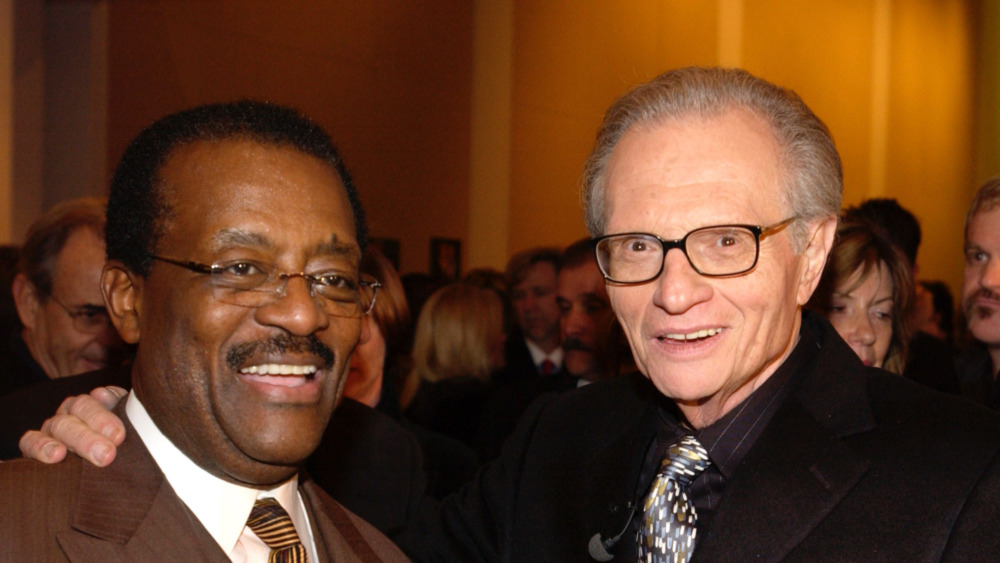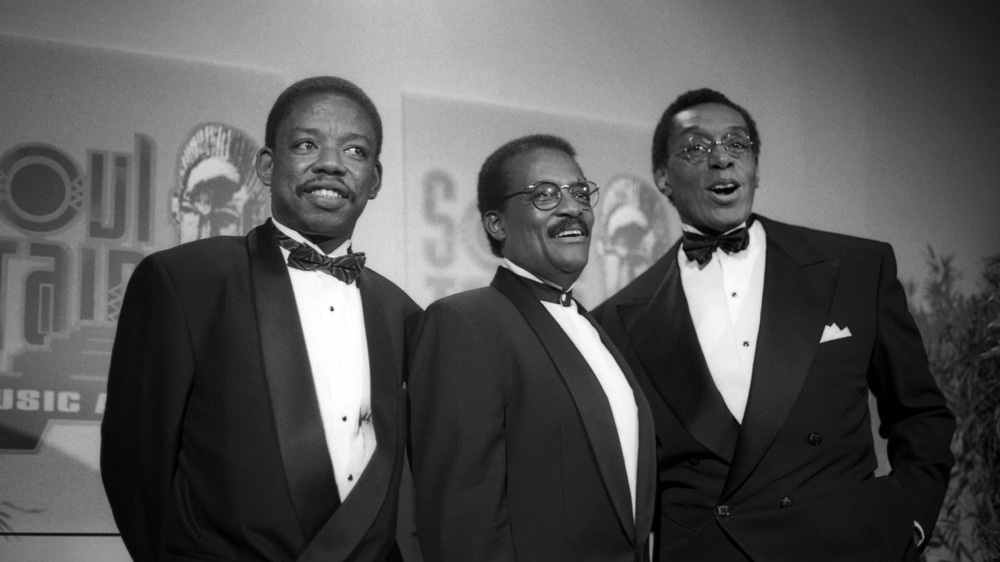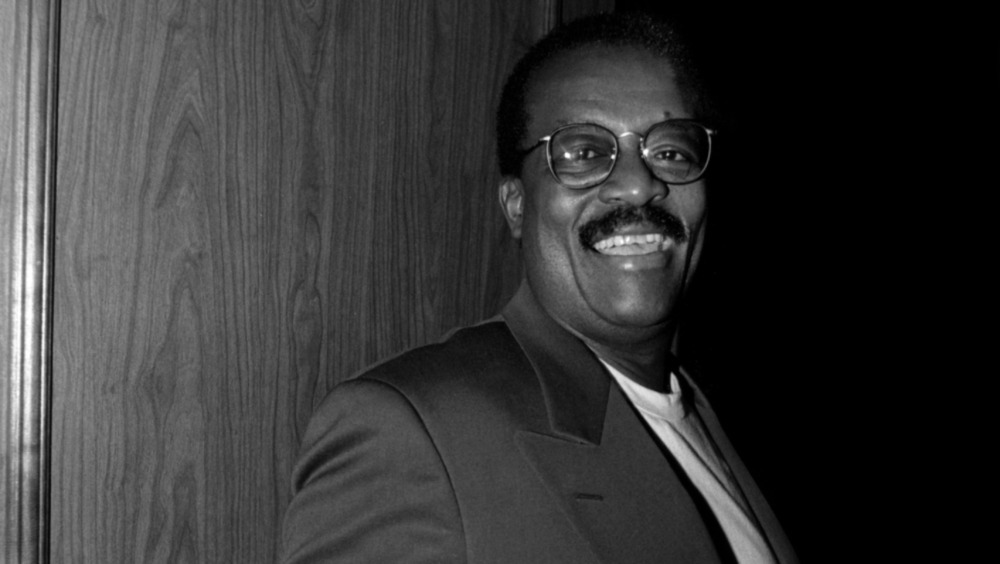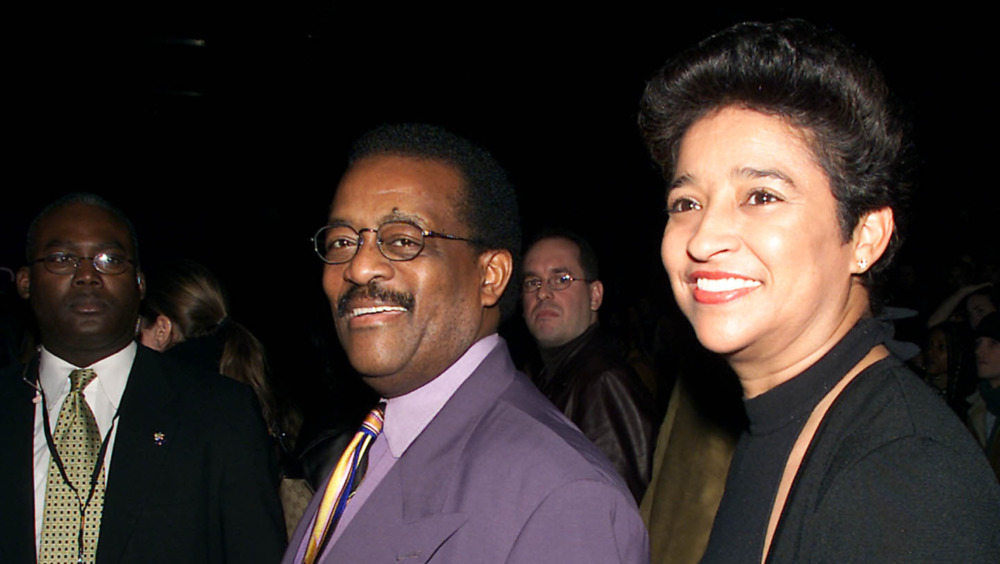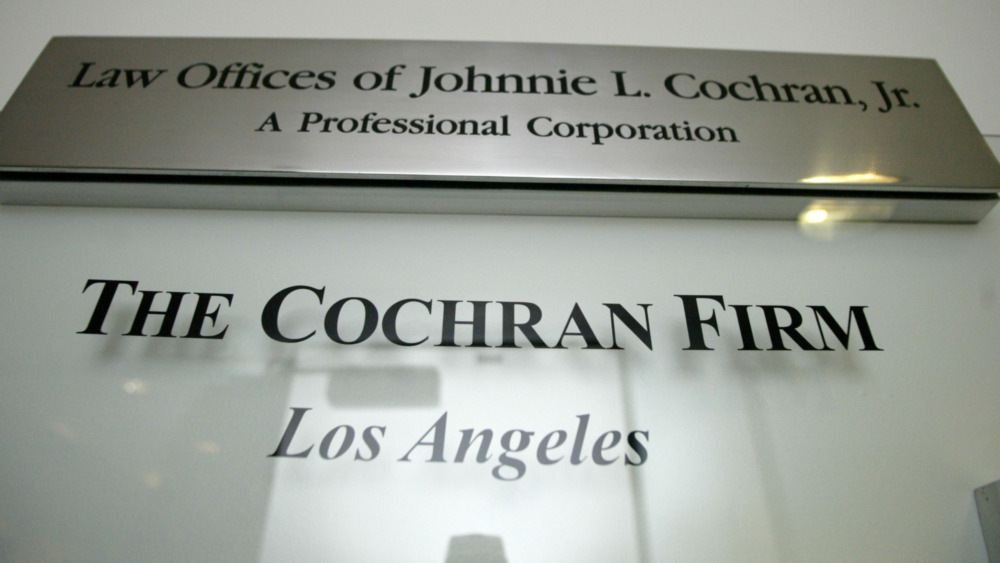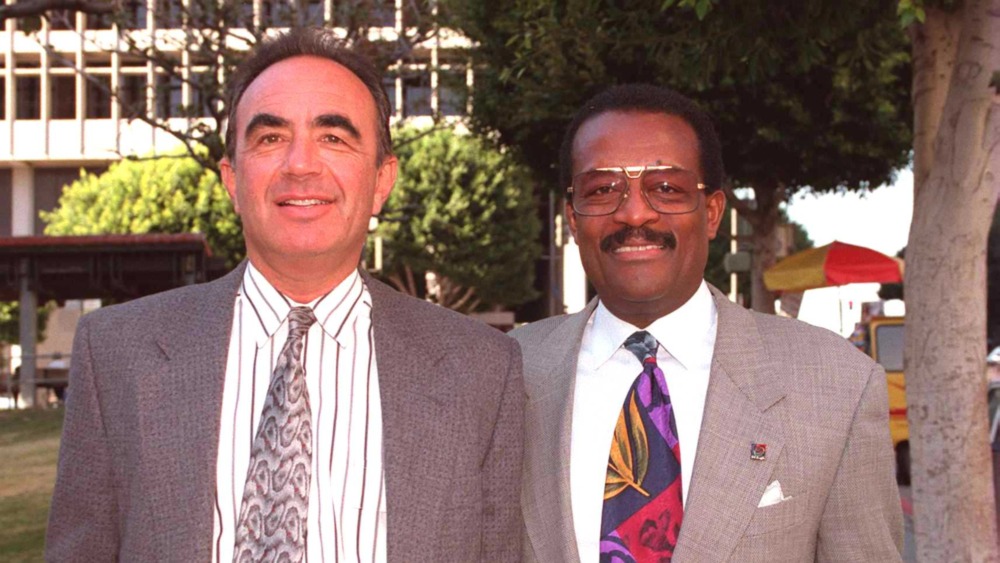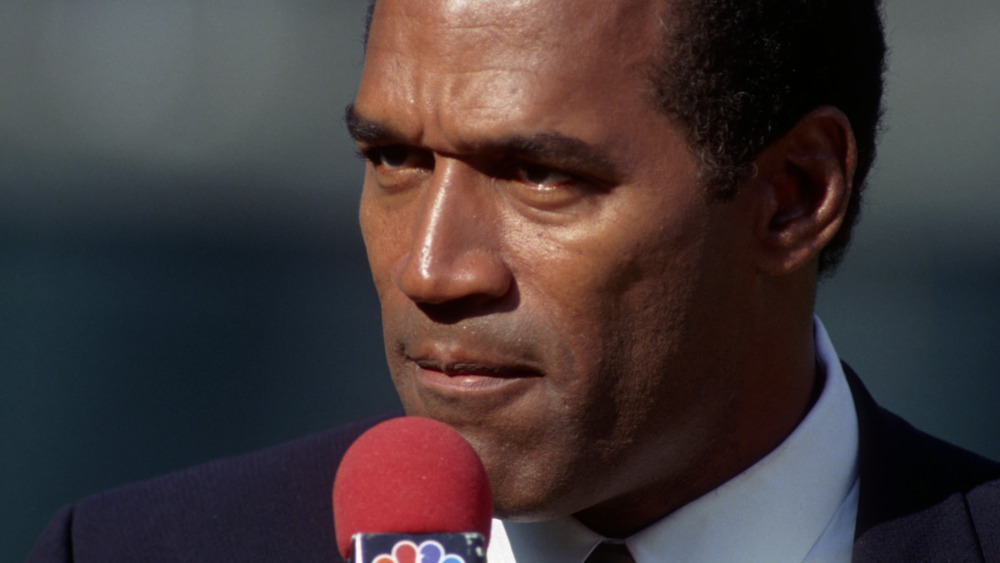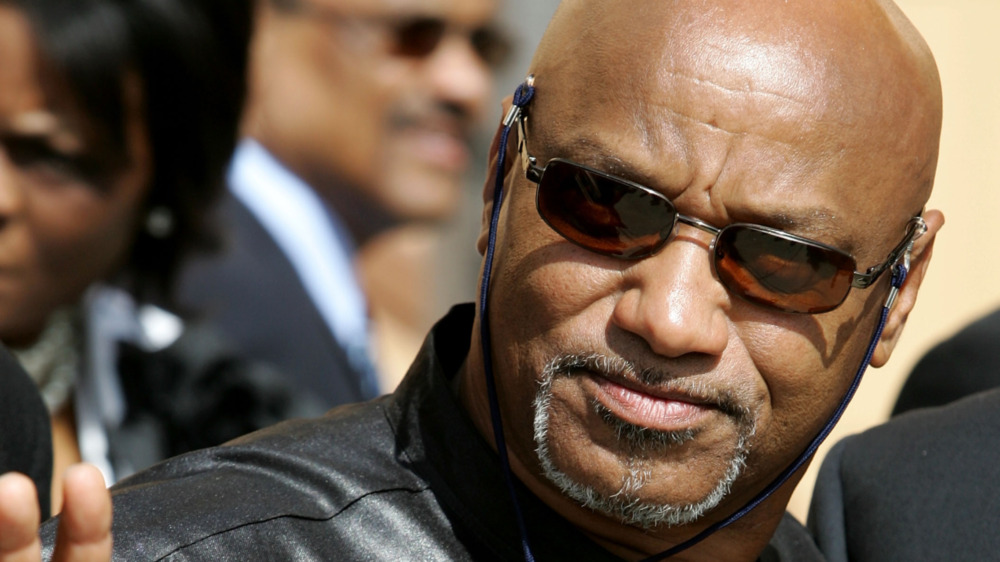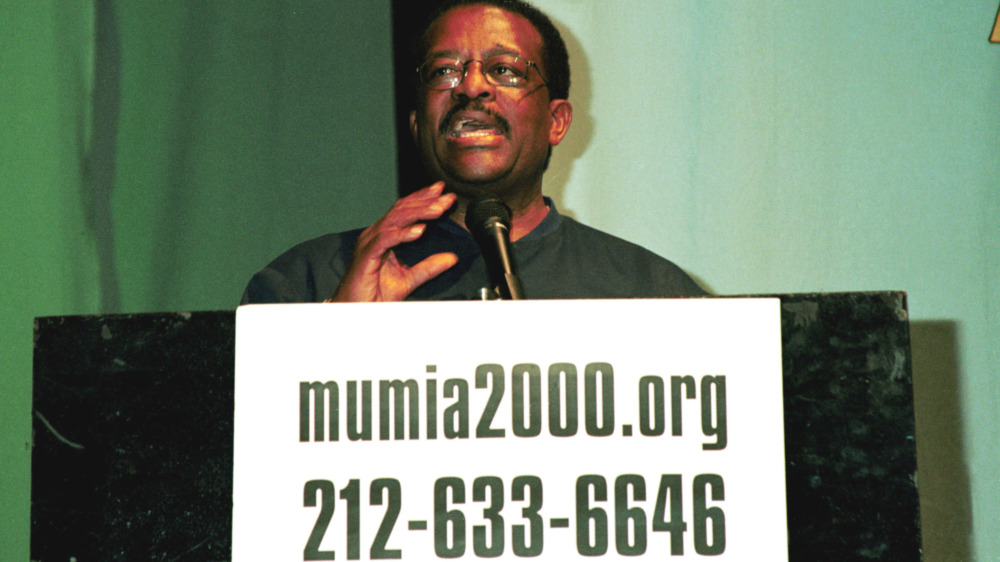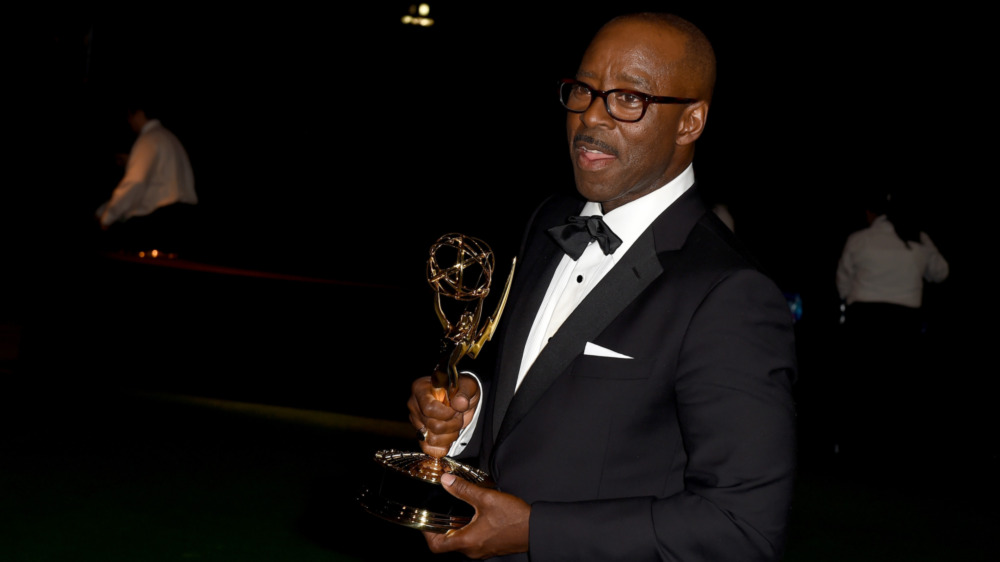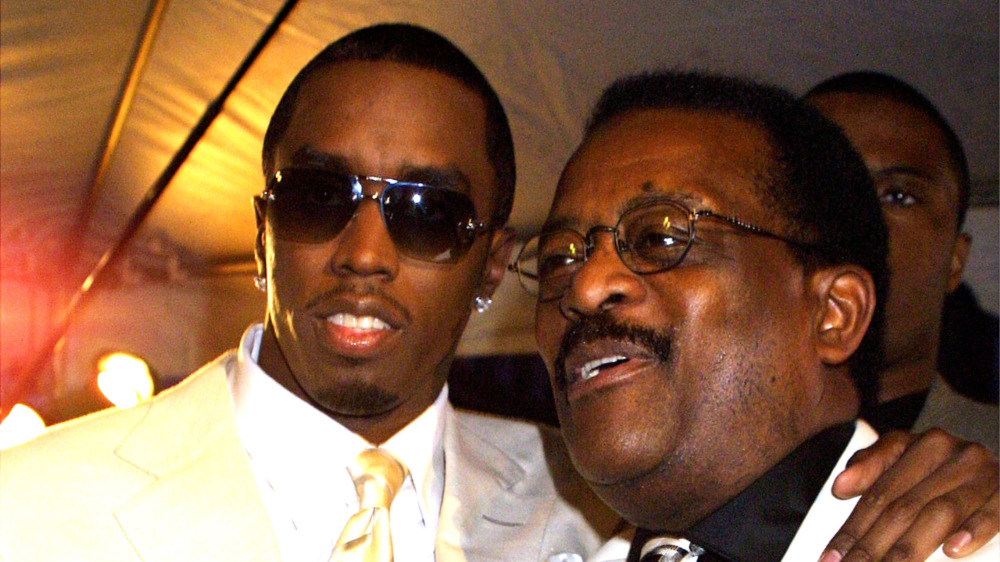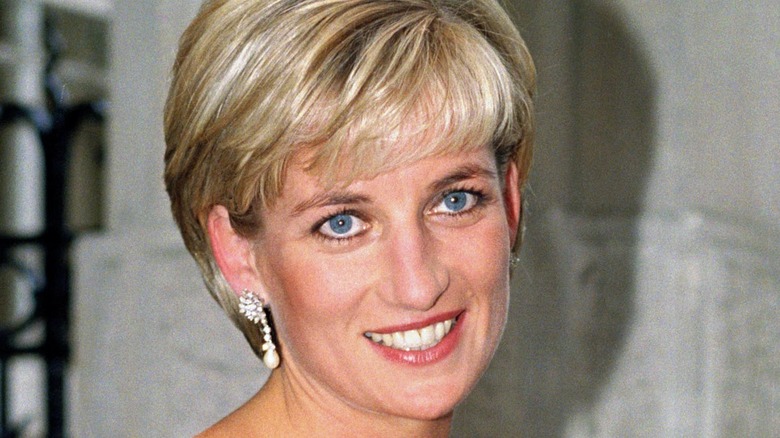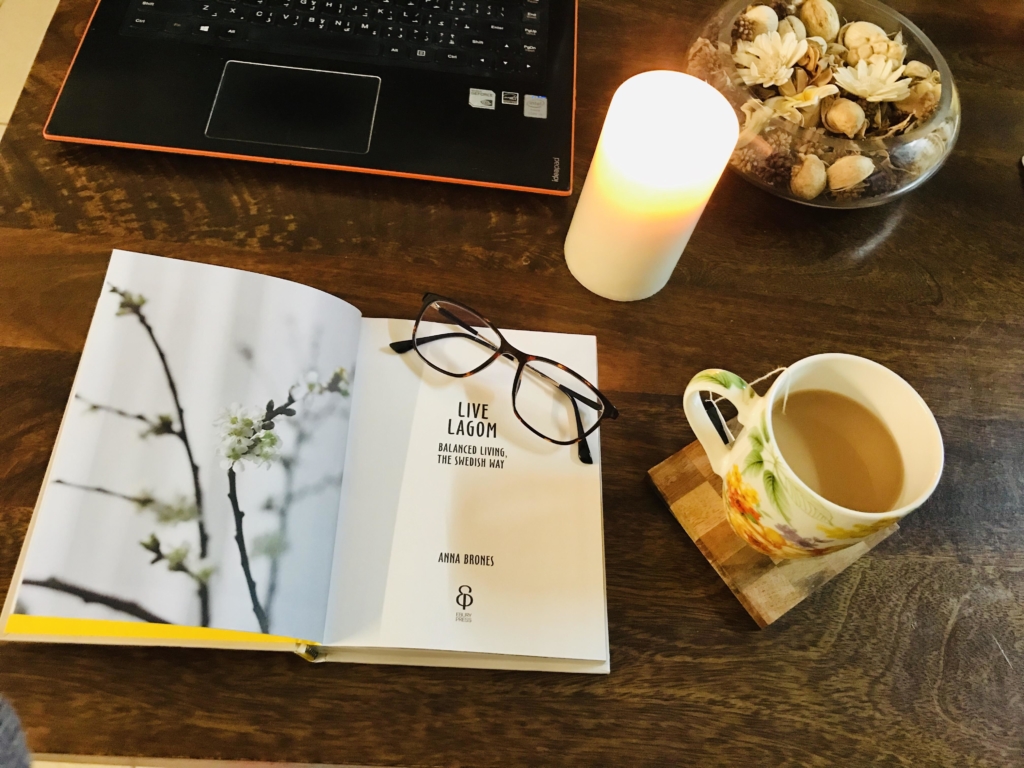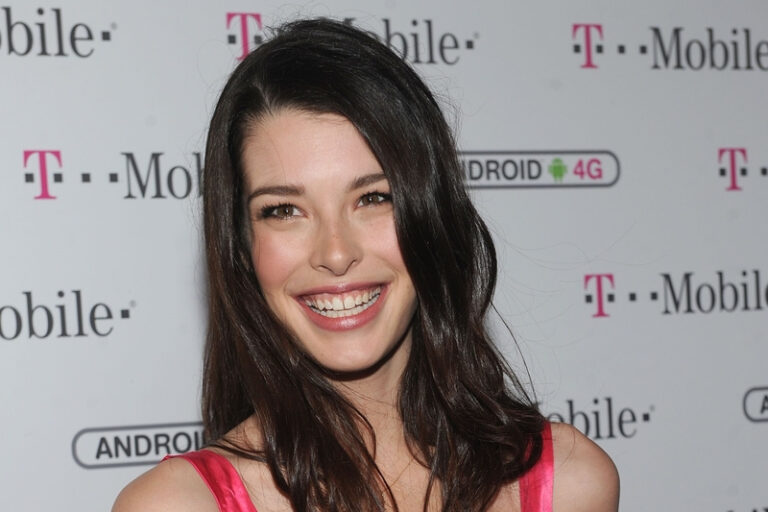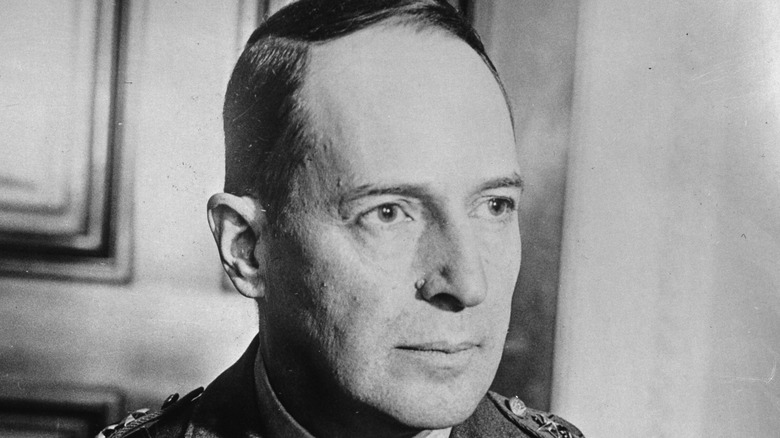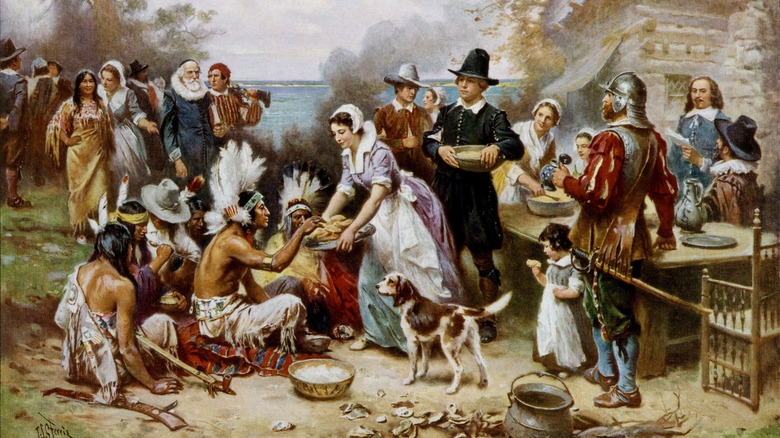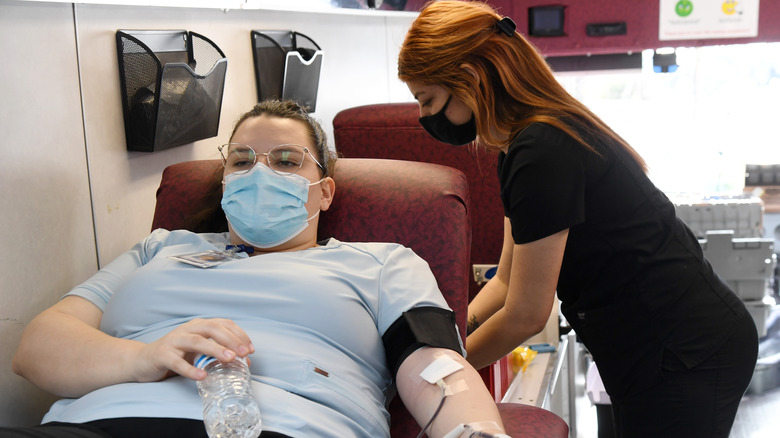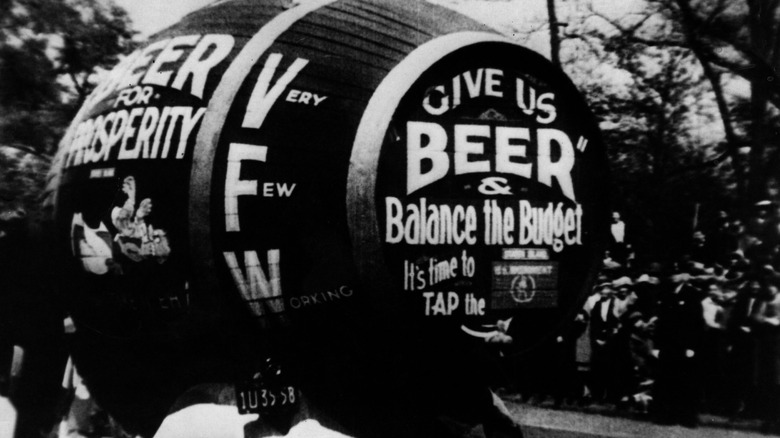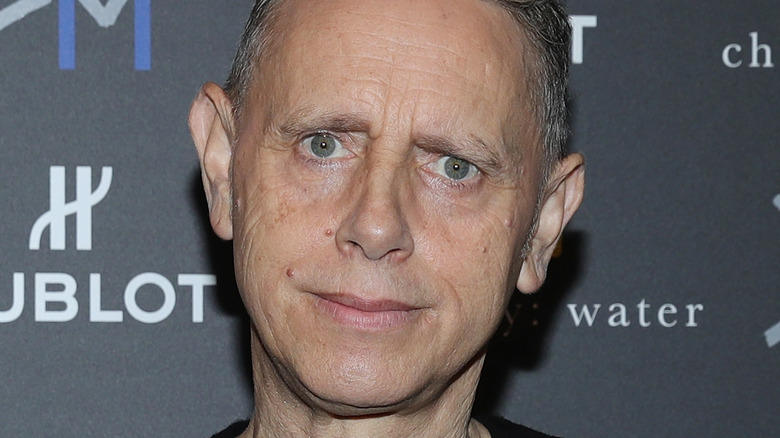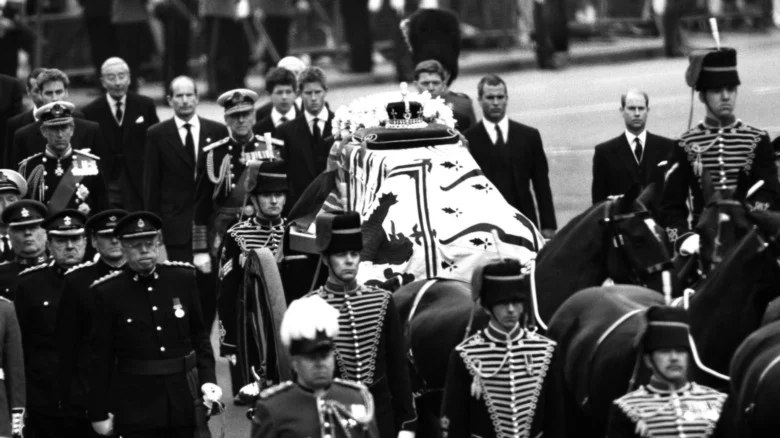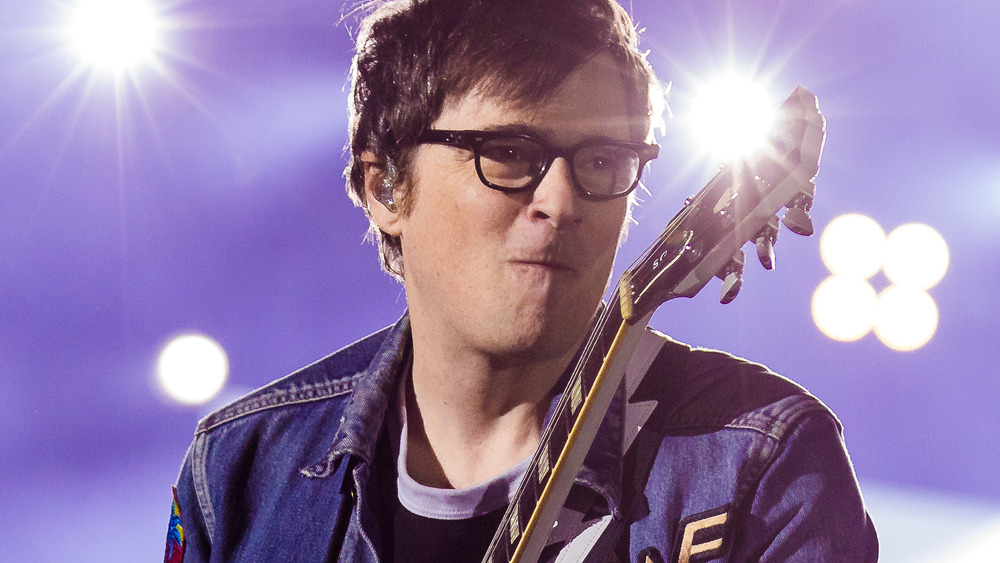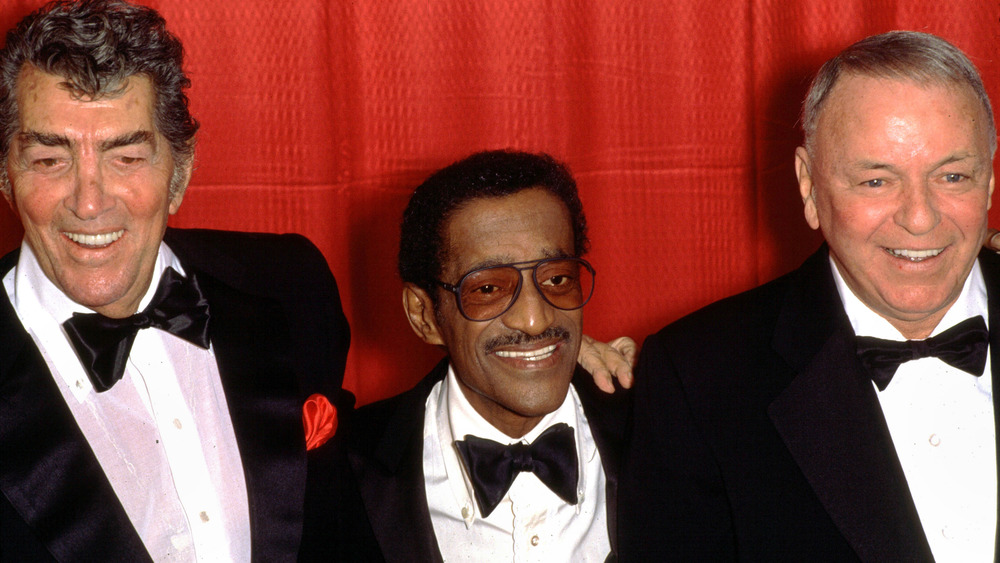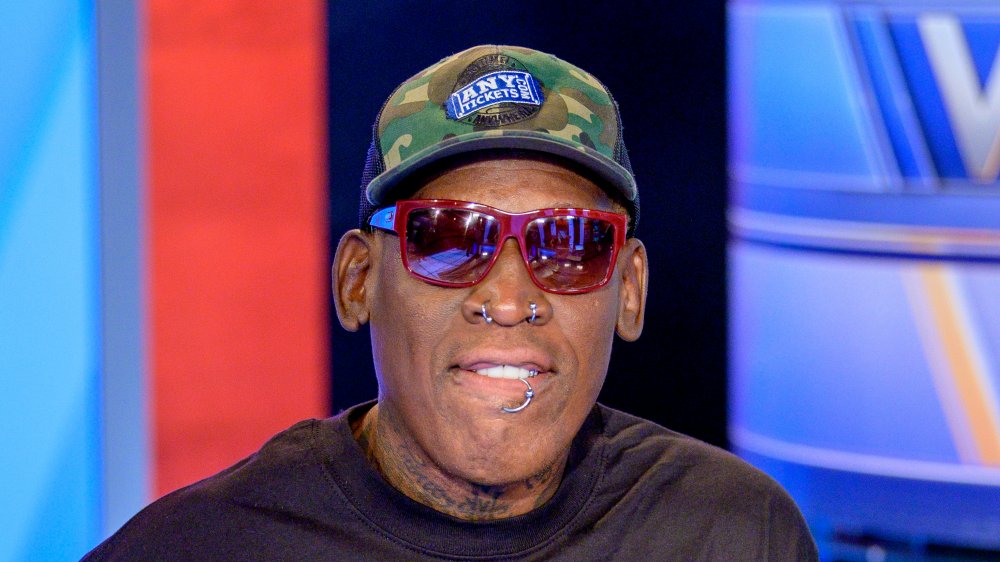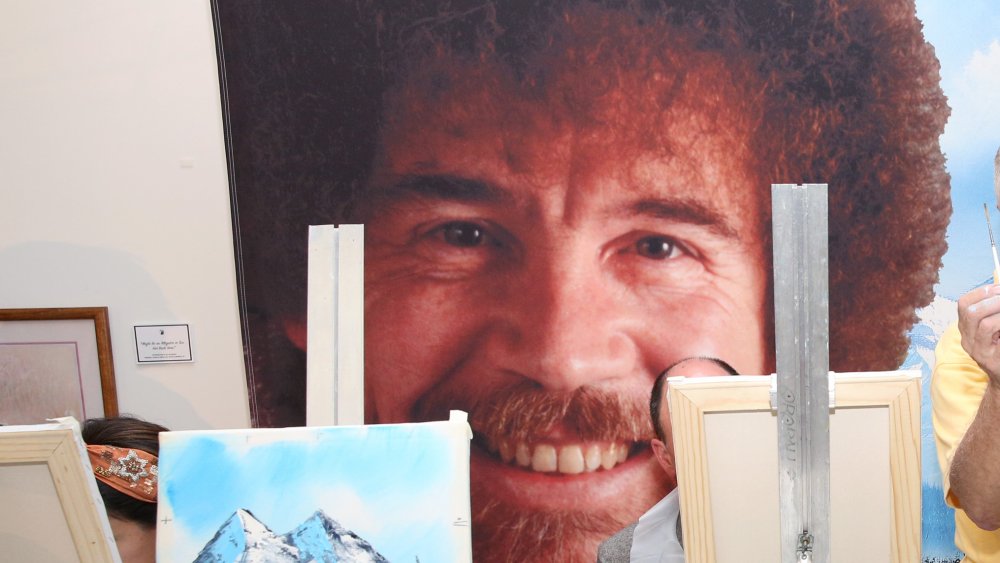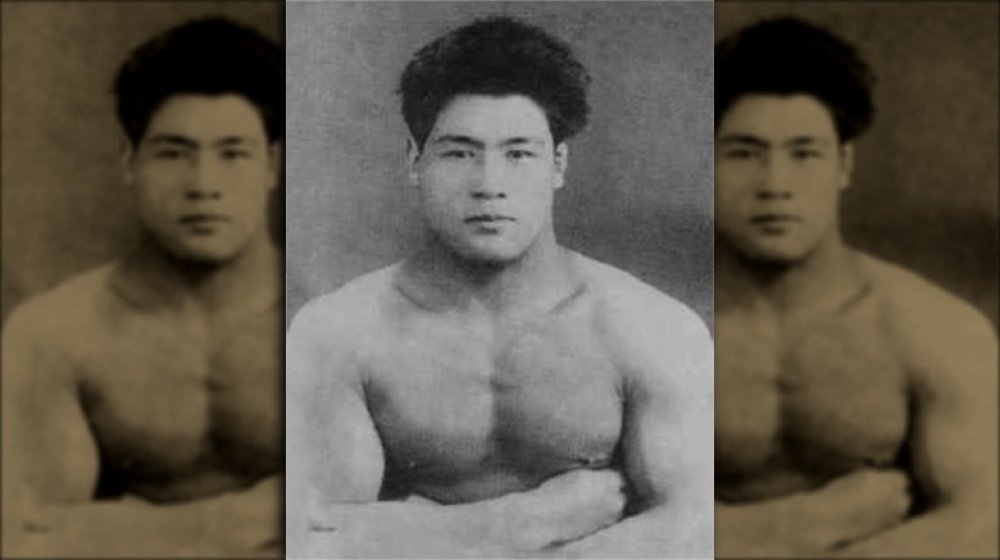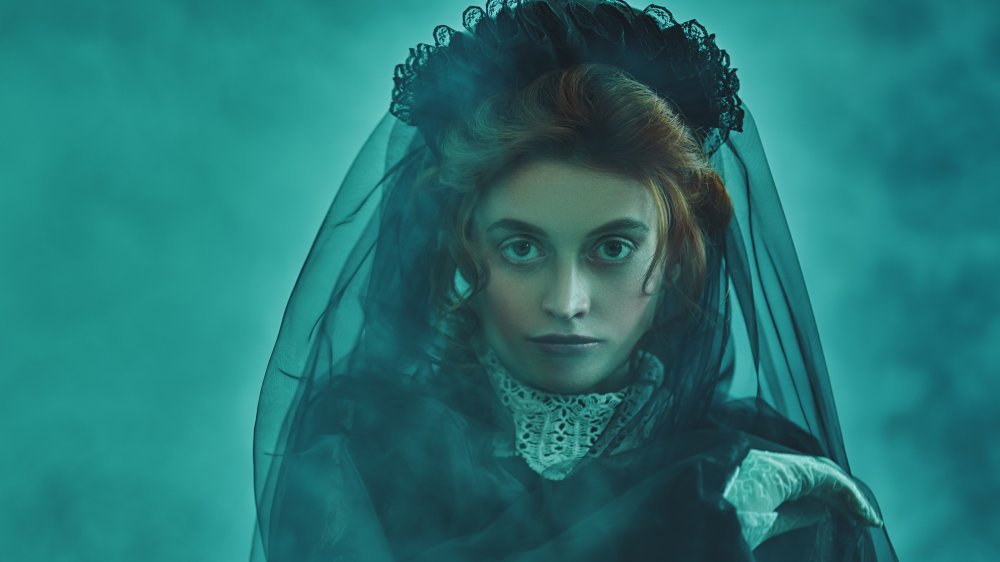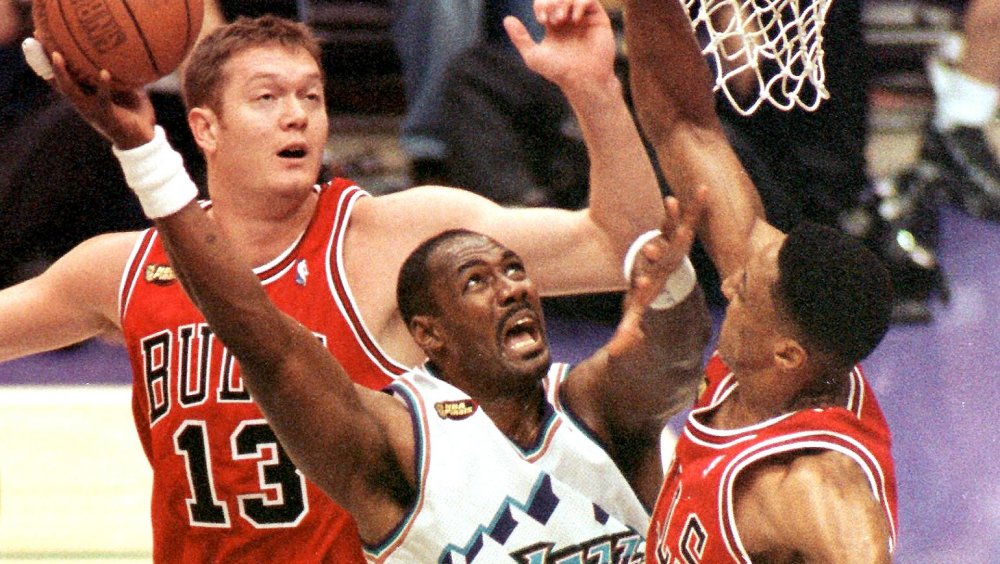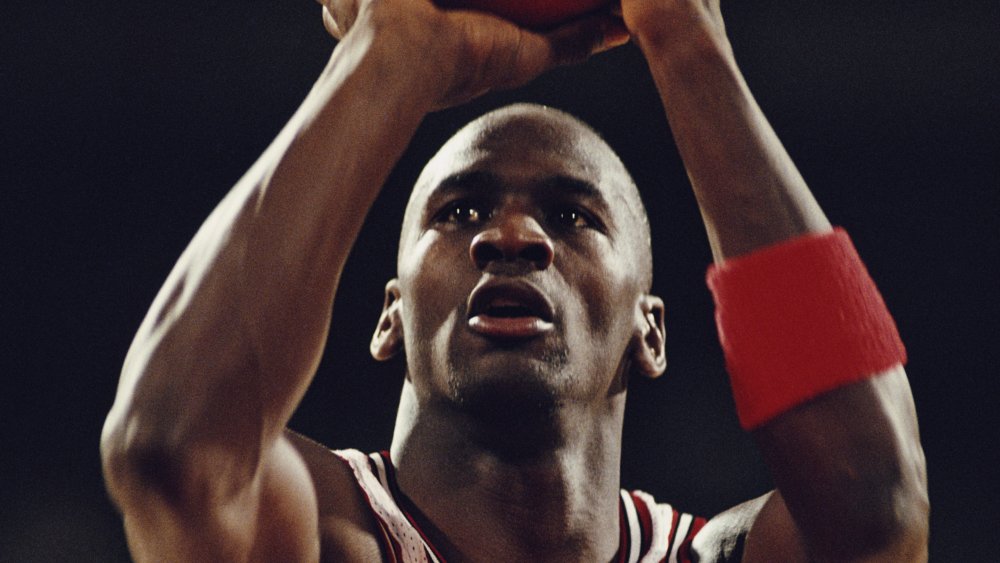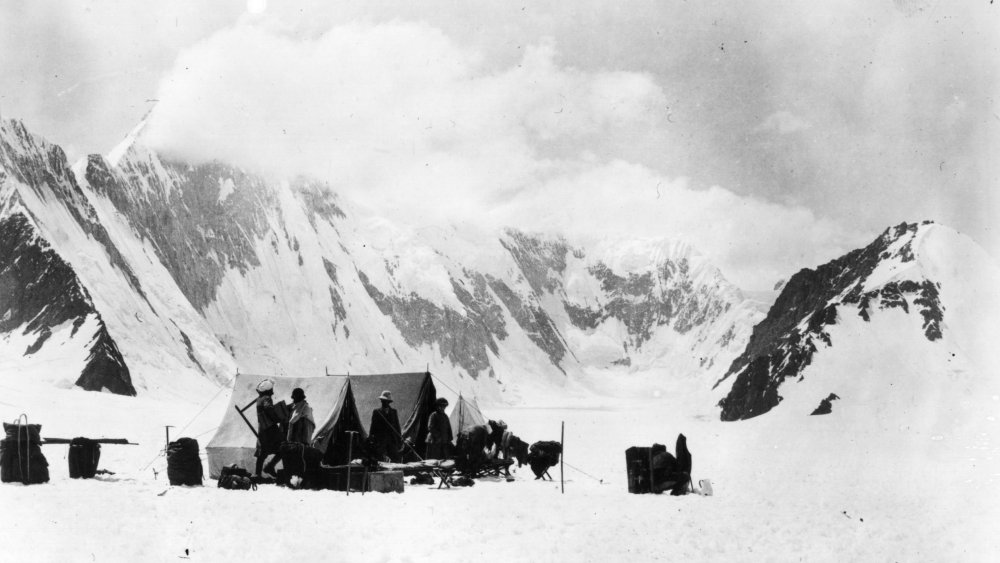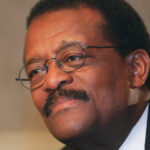
The Untold Truth Of Johnnie Cochran
The vast majority of lawyers and attorneys in the United States barely register as blips on the radar of popular culture. In the best-case scenario, they might find themselves in the newspaper or being interviewed on television if a case they’re a part of makes national or local news headlines. However, their star typically flames out once the case ends.
That cannot be said about Johnnie Cochran. Cochran found himself in the spotlight so much that he himself became a celebrity. Not since Clarence Darrow at the turn of the 20th century has there been a lawyer as well-known in the public eye. And like his counterpart, Cochran was known for representing poor and working-class citizens against what he felt was an oppressive and racist system within the government. However, if one thinks of Cochran, only one or two aspects of his life are usually bought up: either his representation of O.J. Simpson during the former football star’s double-murder trial or one of his many parodies on television over the years.
Cochran is an important figure in the African American and social justice community. His work and leadership have had a lasting legacy almost two decades after his death, and in today’s America, with the death of George Floyd and the nationwide protest in the summer of 2020, one wonders what Johnnie Cochran’s role would be in the national conversation. Here is the untold truth of Johnnie Cochran.
Johnnie Cochran's early life
Long before the “Trial of the Century” and parodies on network television, Johnnie L. Cochran Jr. was born in Shreveport, Louisiana, on October 2, 1937, to Johnnie L. Cochran Sr. and his wife Hattie. According to Biography, when he was just six when the family picked up and moved to California. Away from the Jim Crow South and in the more racially integrated West Coast, the young Cochran excelled in his education.
Given his parents’ background, it’s easy to see what led Cochran to develop his rhetorical and deal-making skills in his adult life. As told by Sun Signs, his father worked as an insurance salesman, and his mother worked as an Avon Lady, selling beauty products. His dining room table was a lesson in negotiation and oratory techniques.
Despite his taking of cases replete with racial tensions, according to Encyclopedia.com, Cochran’s home life was described as colorblind. His parents stressed education and independence for their young son. With both Johnnie Sr. and Hattie working, the Cochran family had no problem putting food on the table or paying bills for the home. Cochran made many friends while in school and, despite his own financial well-being, saw differences between his home and those of his friends: “I knew kids who had things I could only dream of. I remember going to someone’s house and seeing a swimming pool. I was like, ‘That’s great!’ Another guy had an archery range in his loft. An archery range! I could not believe it.”
Johnnie Cochran began as a city attorney
According to The Cochran Firm, Johnnie Cochran earned his undergraduate degree at the University of California at Los Angeles in business administration. He would continue his education at the Loyola Law School in Los Angeles, where he would receive his Juris Doctor in 1963. Cochran’s career in the justice system began shortly after. However, he was sitting in the other bench at the beginning!
The same year he received his Juris Doctor, he was hired by the City Attorney’s Office in Los Angeles. Amazingly, the famed defense lawyer sought by celebrities was, at first, part of the prosecution. He still found himself dealing with a celebrity, though. As The Guardianreports, Cochran prosecuted controversial and influential comedian Lenny Bruce in 1964 for obscenity. This was not the first case against Bruce, and eventually, the courts found in favor of the comedian. Later in his life, Cochran would regret the decision to charge Bruce, saying it was contradictory to the protection of free speech.
When Cochran joined the City Attorney’s Office, he was one of the first Black deputy city attorneys in L.A., Loyola Law School reports. Los Angeles was divided by race, like the rest of the United States. In 1965, the Watts race riots broke out. According to Britannica, 34 people died and over 1,000 individuals were injured during the six-day riot. That same year, believing that African Americans were being abused in the criminal justice system, Cochran left the city’s office.
Switching to private practice
In 1965, Johnnie Cochran switched to the other side of the bench, entering private practice with Gerald Lenior, a prominent local attorney. According to Jrank.org, that partnership did not last long, and by the next year, Cochran had formed a new firm called Cochran, Atkins & Evans.
It was in this firm that Cochran took a case that would change his career. According to The Famous People, Cochran represented the widow of an African American man named Leonard Deadwyler. Deadwyler, as reported by The Washington Post, was speeding and ran several red lights in a desperate attempt to take his pregnant wife to the closest hospital, 20 miles from their home. When he was pulled over by the LAPD, a confrontation followed, and Deadwyler was fatally shot in the chest. The officers claimed that Deadwyler was drunk and irrational, which his widow and Cochran argued was a lie.
In Cochran’s first nationally covered case filled with racial tension, he lost in the civil suit, and no charges were filed by the district attorney’s office. Looking back on the case, Cochran had this to say: “To me, this was clearly a bad shooting, but the [district attorney] did not file charges, and when our firm filed a civil suit we lost. […] But what Deadwyler confirmed for me was that this issue of police abuse really galvanized the minority community. It taught me that these cases could really get attention.”
Cochran had found his lifelong purpose.
Attorney of the Black community
Following his work in the Leonard Deadwyler case, Cochran began to focus more on issues of police brutality and other injustices in the Black community in California and around the country. Because of this and his courtroom theatrics, Cochran began to gain a reputation in the minority community as their fighter. My Black History refers to the lawyer as “an early advocate for victims of police brutality.”
Cochran was originally inspired to study law because of another famous African American lawyer who used the courts to help the Black community. The same year Cochran graduated from high school, the Supreme Court declared segregation at public schools unconstitutional, thanks in large part to the legal argument made by Thurgood Marshall. Marshall would eventually become the first African American justice on the U.S. Supreme Court, and his victory pushed Cochran to study law in college.
According to Bustle, another infamous case of police brutality involved a football star named Ron Settles, who died in police custody under suspicious circumstances. In 1983, Cochran represented the family in the civil case, and a settlement was reached. His activism in taking on police brutality cases against African Americans led many outside the Black and progressive community to view Cochran as anti-police and a spotlight chaser. Cochran disputed these claims, saying he had great respect for the law and law enforcement (his own son was a cop) and that he was just shining a light on the true actions of the LAPD.
Establishing The Cochran Firm
At one point, the “lawyer of the people” returned to work for “The Man.” According to The Trial Lawyers Hall of Fame, Johnnie Cochran became the first African American assistant district attorney in Los Angeles when he was hired to the position in 1978. He said that joining the government was the best way to become one of the “good guys” that can fight for justice within the justice system.
As an ADA, one of his subordinates was Lance Ito, who would eventually be the presiding judge in the O.J. Simpson trial, as told by Famous Trials. During his years as an assistant district attorney, Cochran was instrumental in founding the L.A. County Domestic Violence Council in 1979. Still, the racism that infected the LAPD affected Cochran personally in one scary incident.
According to Bustle, while he was driving his daughters in his Rolls-Royce, officers pulled Cochran over. They immediately demanded that he get out of the car and had their guns drawn on him. They then grabbed his bag and began to rifle through it, only to find that he was the ADA of Los Angeles County. The officers immediately began to apologize and let Cochran on his way. Cochran never publicized the incident and worried more about the effects it would have on his children. Cochran returned to private practice in 1983, founding his own law firm.
Johnnie Cochran wasn't just a “go-to” lawyer for the rich
Despite his work within the Black community and with people without the strongest financial means, Johnnie Cochran was still connected to Hollywood. Cochran’s history of representing Black celebrities was well-known even before hitching his wagon to O.J. Simpson. In fact, Simpson was not even the most well-known celebrity Cochran represented in 1994. According to Bustle, that same year, Cochran had represented Michael Jackson in his child molestation trial, which ended in a settlement and no admission of guilt.
Cochran also represented Snoop Dogg, Sean Combs, and Tupac Shakur, as told by MTV. He represented former child star Todd Bridges when he was accused of murder, for which he was acquitted. Still, Cochran was not some celebrity chaser or someone who only represented high-profile Black clients. Cochran represented Reginald Denny, a white truck driver who was assaulted by Black citizens during the L.A. riots following the Rodney King verdict, and Abner Louima, a Haitian man brutalized and sexually assaulted by multiple NYPD officers.
The BBC reports that Cochran represented 18 Black girls molested by a teacher, who was hired despite knowledge that he was a convicted pedophile. Cochran said, “Nobody did anything about it because these people were poor and minority.” The suit ended in the largest settlement in the history of the L.A. school district. Cochran stated, “The clients I’ve cared about the most are the No Js, the ones who nobody knows.” His tireless work earned him his good standing in the Black community.
The O.J. Simpson trial
It was the O.J. Simpson trial that turned Johnnie Cochran into one of the most famous men in the country, and if someone had told Cochran this at the dawning of the double homicide investigation, he would have been more surprised than anyone. This is because Cochran had nothing to do with O.J.’s defense team in the beginning.
According to Biography, Simpson originally hired Robert Shapiro as the lead counsel for his defense team on June 15, 1994, three days after the murders of Simpson’s ex-wife Nicole Brown and Ron Goldman. By January 1995, Simpson’s lawyers were no longer on speaking terms, leading to Cochran being called in and taking charge of the team. With everyone watching “The Trial of the Century,” the U.S. got to see the maestro do his work.
Cochran put the LAPD on trial, with his defense team undercutting two of the main characters of the prosecution. Criminologist Dennis Fung was forced to admit under oath he had not used proper protocol in gathering evidence, and Detective Mark Fuhrman lied under oath when he was cross-examined about using racist language in his past. The Fuhrman tapes also provided evidence of past police brutality incidents. In the end, Simpson was acquitted of the double murder.
A decade later while eulogizing Cochran, Reverend Al Sharpton had this to say about the lawyer, as reported by The Undefeated: “With all due respect to you, Brother Simpson, we didn’t clap when the acquittal of Simpson came for O.J. We were clapping for Johnnie.”
The Geronimo Pratt case
One would think the O.J. Simpson trial would be the highlight of Johnnie Cochran’s career: He’d successfully acquitted one of his most well-known clients and put the entire Los Angeles Police Department on trial for their history of brutality and racial abuse. However, according to The Washington Post, overturning the conviction of Geronimo Pratt is what Cochran said was “the happiest day” of his legal practice.
Black Past says that Pratt was born Elmer Pratt. Like Cochran, he was born in Louisiana before moving to California and was an exceptional student in high school and at UCLA. He joined the Black Panther Party and quickly rose to a position of prominence. In 1970, he was tried and convicted for murdering Caroline Olson, a white school teacher. As a member of Pratt’s legal team at the time, Cochran argued that Pratt was 350 miles away at a Panthers meeting and pointed out that Olson’s husband, who was also shot but survived, said another man had been his wife’s killer.
Cochran never gave up hope on the case and, with the help of law student Stuart Hanlon, was granted a new trial in 1996. It was revealed that the main witness for the prosecution, Julius “Julio” Butler, was an FBI and police informant used to undermine the Black Panthers. Hanlon told the L.A. Times, “Geronimo was a powerful leader, for that reason, he was targeted.”
Pratt’s conviction was overturned in 1997, and he was awarded $4.5 million by a federal judge.
Johnnie Cochran's personal life
Johnnie Cochran’s private life was as much in the spotlight as his professional life, the inevitable result of dealing with famous clients. Still, Cochran preferred to keep his personal life out of the headlines. This in part came from some disturbing accusations leveled against him by his first wife and an affair during their marriage.
Cochran married his first wife, Barbara Berry, in 1960, and the couple had two daughters. However, according to Romper, the marriage ended in divorce in 1977, under allegations of domestic abuse. Berry claimed that during their 17 years of marriage, Cochran had hit her on numerous occasions. Eventually, she was granted a restraining order from her soon-to-be ex. Cochran denied these allegations, and his daughter later defended her father but also said, “Sometimes things can go on in marriages that children never see.”
Cochran was also seeing at least one woman outside the marriage. The famed lawyer fathered a son with a woman named Patricia Sikora, as told by Bustle. His son became a police officer, a fact of which Cochran would remind people who accused him of an anti-cop bias, so his relationship with Sikora was not a secret in his life. Berry and Sikora collaborated on a book during the fervor of the Simpson trial, Why I Left the Sweetest-Talking, Most Successful Black Lawyer in L.A. At this point, Cochran was married to Sylvia Dale. The couple tied the knot in 1985 and would remain married until his death.
Johnnie Cochran's portrayals in the media
Parodies of Johnnie Cochran are, in a way, just as famous as the man himself. His likeness can be found throughout popular media since the 1990s. In fact, one of these parodies even sparked an actual legal strategy.
As a result of the O.J. trial, Seinfeld parodied Cochran with their character of Jackie Chiles, who mirrored the mannerisms, appearance, and inflections of Cochran. His first appearance, according to Fandom, was in the episode “The Maestro,” and he became one of the show’s most iconic characters, even appearing in the series finale.
As for actual portrayals of Cochran, in a season two episode of South Park, Cochran represented a record company and then the character Chef in two lawsuits. For his closing statements, instead of discussing the case, Cochran rambled about the Star Wars character Chewbacca, which led to his victories. The episode spawned the term “The Chewbacca Defense,” which describes the tactic of using red herrings to confuse an audience or jury instead of arguing the facts. The term has been used to describe political arguments, legal defenses, debates, and many more scenarios.
In 2016, Courtney B. Vance (pictured) portrayed Cochran in the FX miniseries The People vs. OJ Simpson: American Crime Story. Vance was awarded an Emmy for “Lead Actor in a Limited Series or Movie,” beating out his co-star Cuba Gooding Jr., who played Simpson himself.
Johnnie Cochran's final years
According to Britannica, by the early 2000s, Cochran oversaw 10 law firms across the country; was the chairperson of the Upper Manhattan Empowerment Zone, an agency that sought economic growth in Harlem, Washington Heights, and Inwood; and was still representing some of the most famous Black celebrities in the world.
According to the L.A. Times, Cochran was diagnosed with an inoperable brain tumor in December 2003. On March 29, 2005, Cochran passed away at the age of 67. San Diego Source reports that his funeral attendees included some of the biggest figures in the Black community, many of whom he had represented. Mayor James Hahn, a friend of Cochran’s, had this to say at the service: “He didn’t just love justice or admire justice — he did justice, he achieved justice, he fought for justice, he made it happen.”
During this time, Cochran was part of one last case. According to The Free Speech Center at Middle Tennessee State University, a dissatisfied client of Cochran, Ulysses Tory, had publicly protested outside of the lawyer’s office. Cochran sued Tory and won his case, with the court saying Tory “engaged in a continuous pattern of libelous and slanderous activity.” The court forbade Tory from continuing to speak about Cochran and his firm, and he appealed all the way up to the Supreme Court. However, as the case began, Cochran passed away. To the majority of the justices, his death made the punishment moot, and the Supreme Court ruled 7-2 in Tory’s favor.
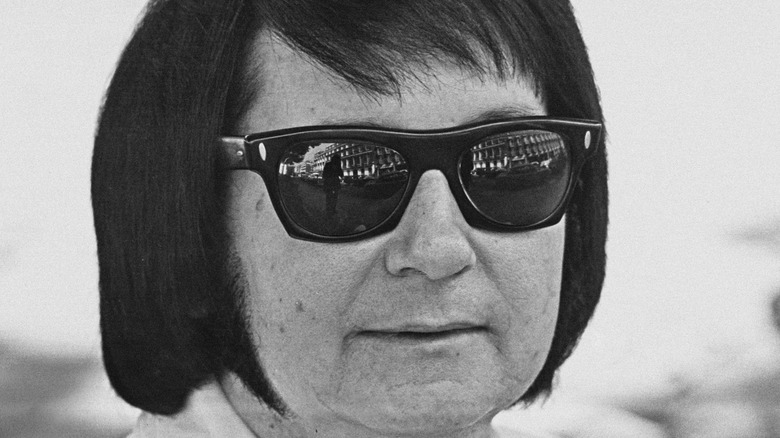
Where Is Roy Orbison Buried?

Here's Who Inherited David Bowie's Fortune After He Died
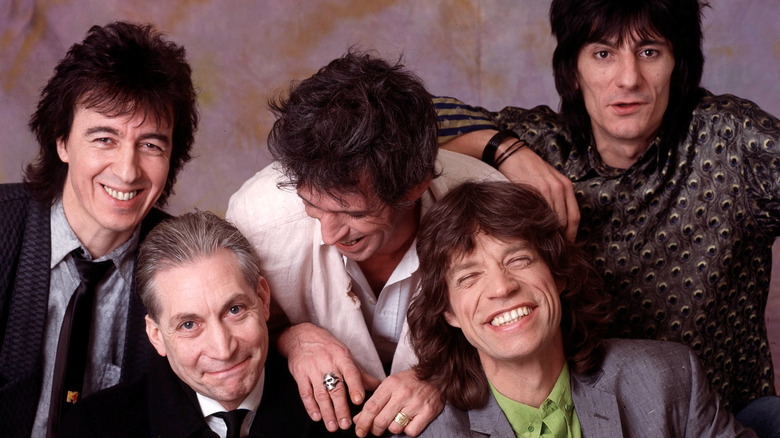
The Rolling Stones: What Happened To Every Former Member?
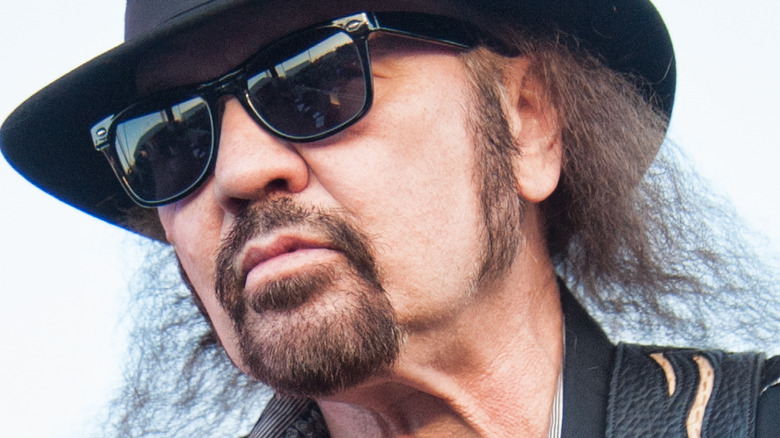
Gary Rossington's Emergency Heart Surgery: Details We Know So Far
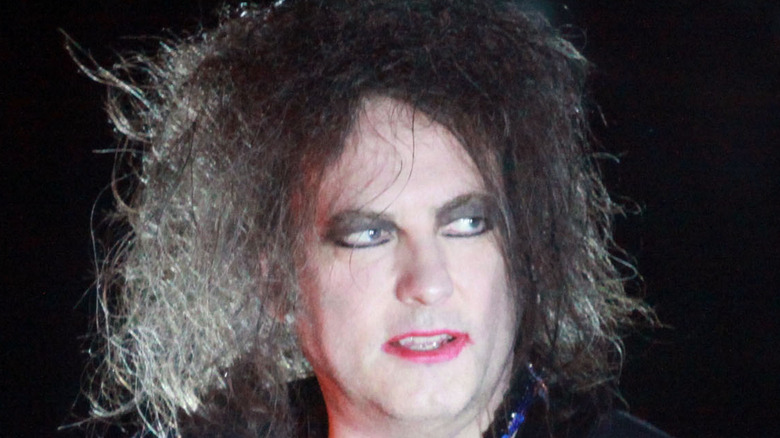
Why The Cure Haven't Released An Album Since 2008
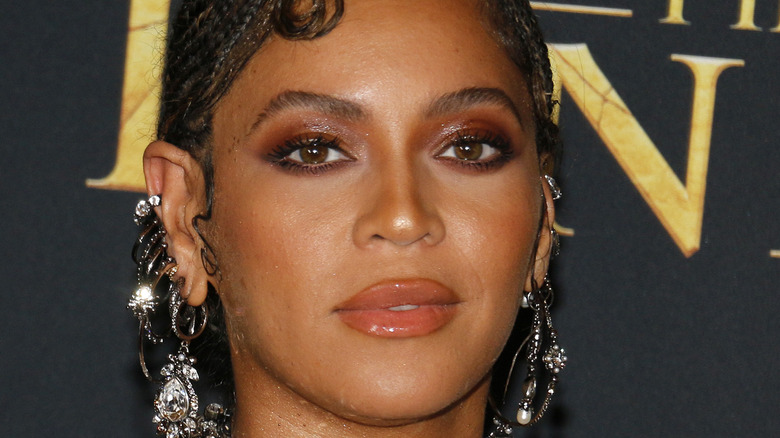
Here's How Much Beyonce Is Actually Worth
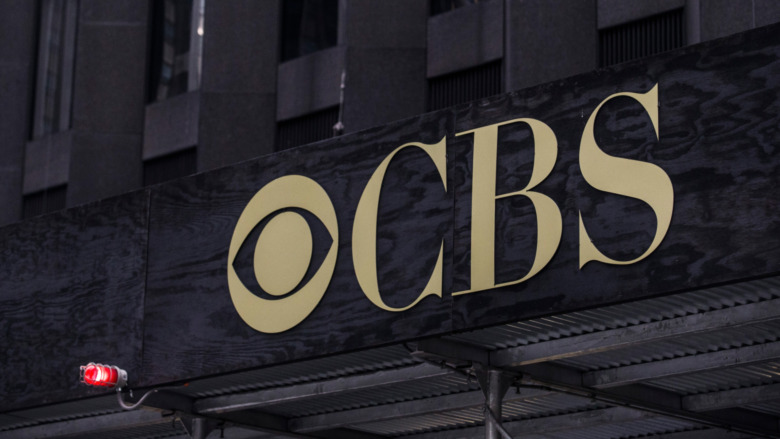
The Biggest Scandals To Hit CBS
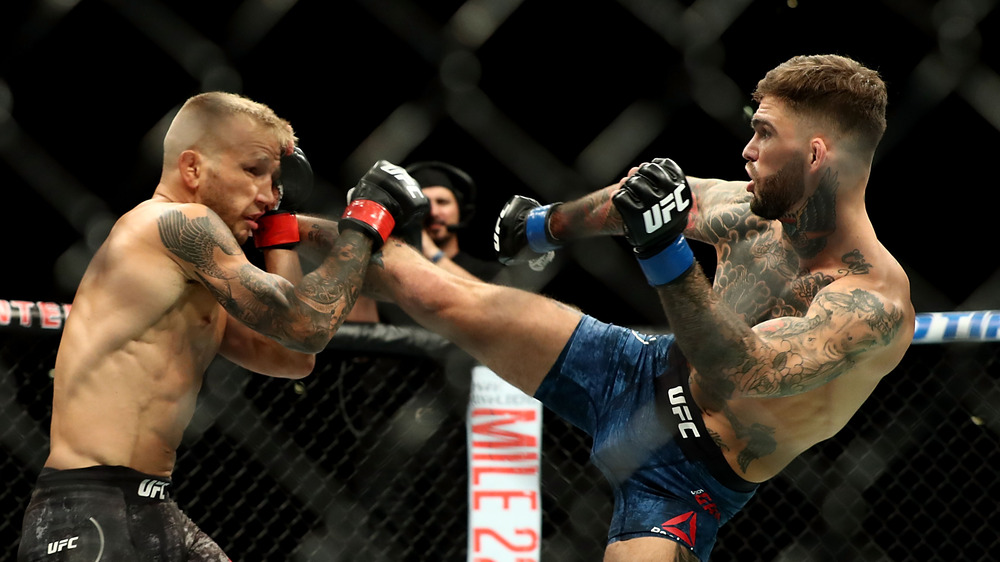
Inside Cody Garbrandt And T.J. Dillashaw's Feud
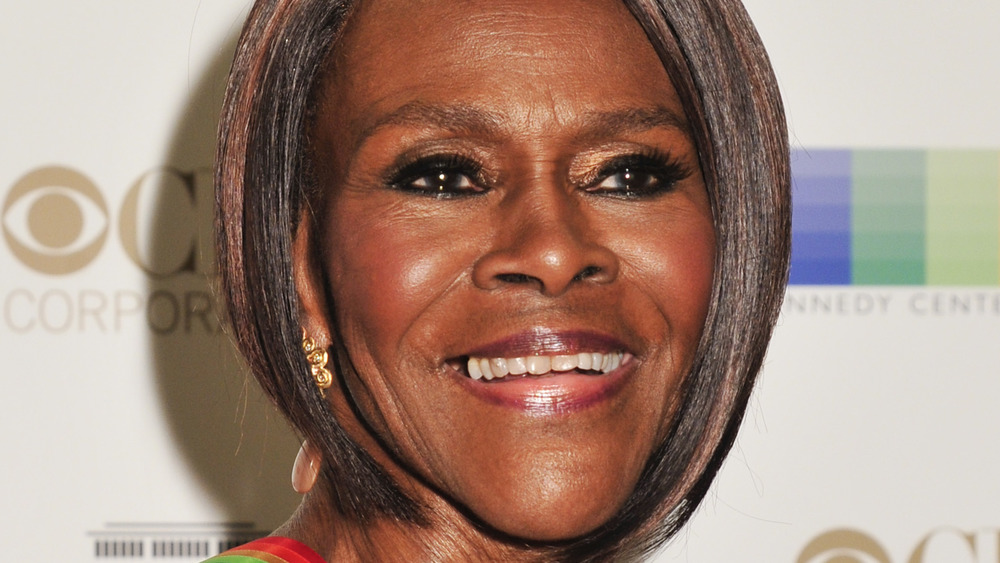
The Untold Truth Of Cicely Tyson

Top Workout Songs to Motivate You
